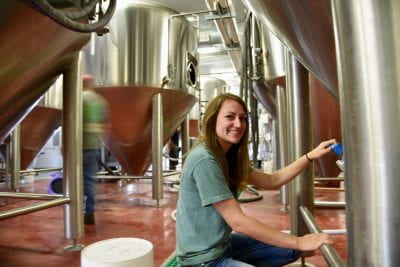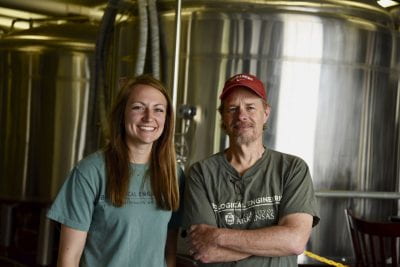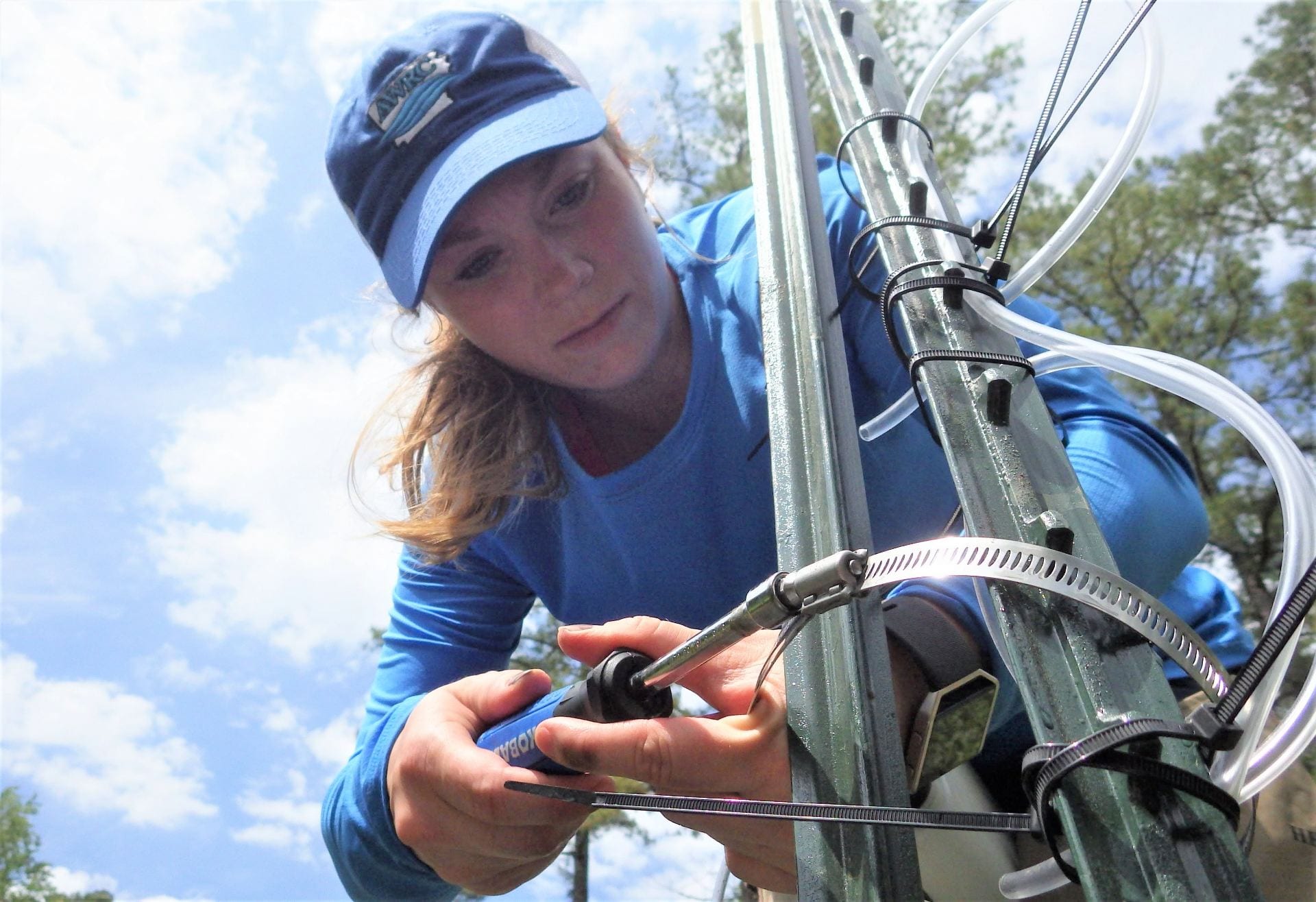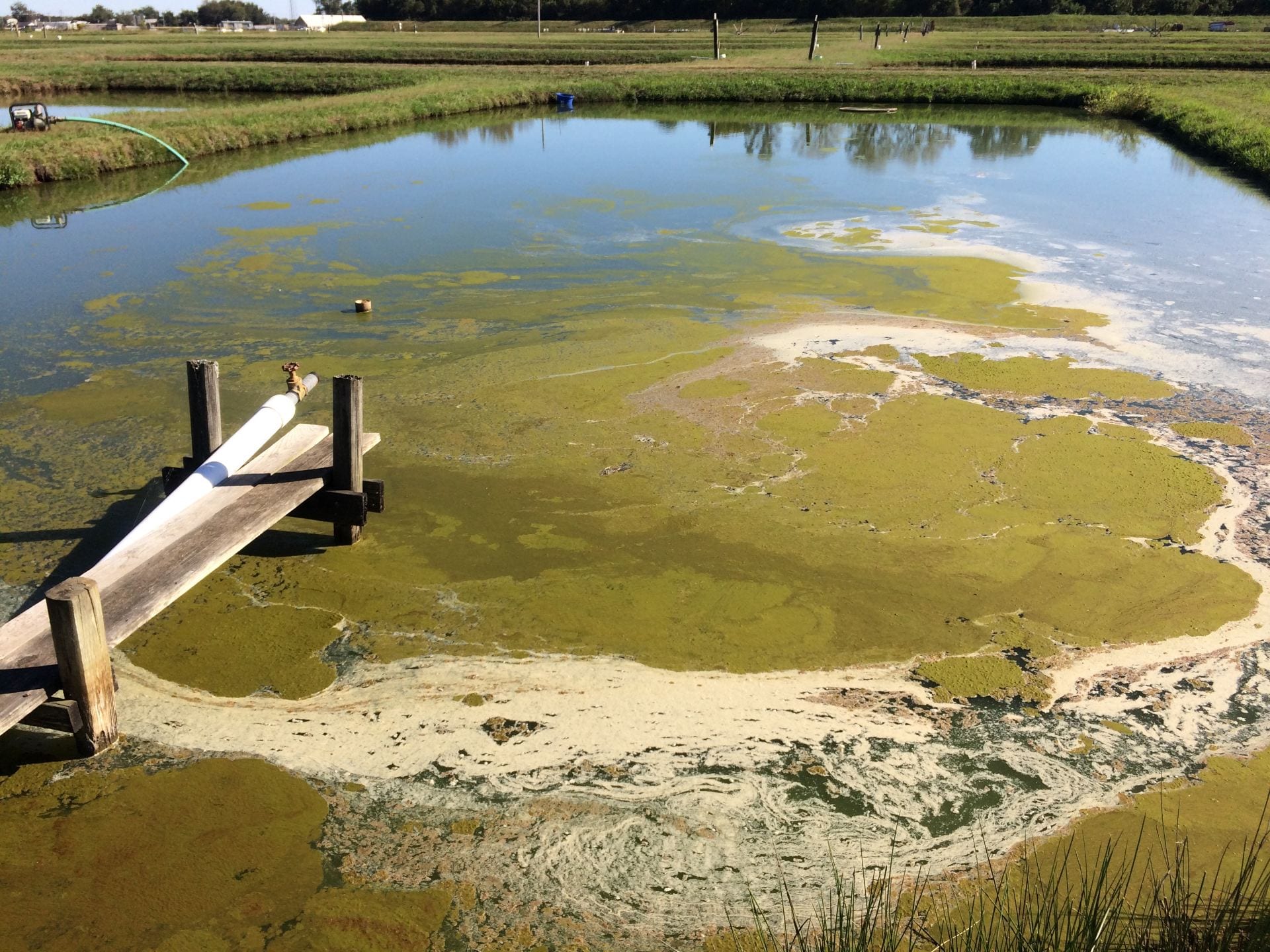
Student Researchers Help Craft Beer Maker Improve Water Sustainability

Good craft beer starts with good water quality. But, to produce craft beer sustainably, one student group finds that water quantity is also very important.
Recently, Core Brewing Company, a Northwest Arkansas based craft beer producer, had an opportunity to discover how to improve their water use efficiency. The brewery currently uses nearly 2 million gallons of water annually. The benefits to reducing their water use would be two-fold: 1) it would be good for the environment, and 2) it would reduce their overall costs.
Jesse Core, founder of Core Brewing, worked with four seniors from the Capstone design experience course in the department of biological engineering at the University of Arkansas to come up with a solution to his problem.
Seniors Kaylyn Zuech, Natalie Von Tress, Lydia Huck, and Zach Wofford tackled this project by first conducting an audit of Core’s water use through their various stages of beer production. The team’s audit identified an ineffective heat exchanger as the primary source of wasted water. The heat exchanger is used to rapidly cool the wort from boiling to temperatures suitable for fermentation.
“After we conducted the audit, the head brewer was really surprised at how much potable water they were discharging,” said Kaylyn.

Lydia Huck with advisor Dr. Scott Osborn, working at Core Brewery on a water sustainability project. Lydia was part of a team of students doing their engineering capstone project at Core.
Once the problem was identified, the team got to work figuring out how to improve Core’s water use efficiency. They came up with three main recommendations:
- Reconfigure the existing heat exchanger (or replace it) and slow the flow rate of water moving through the heat exchanger. Reducing the flow will allow the water to absorb heat from the hot wort more efficiently.
- Capture the water leaving the heat exchanger in a cooling tank and reuse it to cool multiple batches of wort.
- Divert water from the cooling tank for final use into the keg cleaner to ensure the water in the cooling tank remains food-grade.
The team projected that if Core followed these recommendations, it would reduce their annual water use by 1.3 million gallons, making their water use to beer produced ratio 3.4 L/L. This is quite a bit lower than the industry average of 6.0 L/L, making the company a leader in sustainability in the brewing industry.
Implementing these changes in brewery operations would cost Core $11,000 up front, but would save about $5,000 in annual operating costs, allowing them to recoup their initial investment in a little over two years.
“We worked hard to analyze the heat exchanger and to optimize its performance to save water and reduce costs without affecting the quality of beer,” Lydia said. “This project was on a much bigger scale than any technical project we’d ever done, but in the end we were able to help Core Brewery become more sustainable, which made this project very rewarding,” she added.
Lydia is now pursuing a graduate degree in Biological Engineering at the University of Arkansas. Working with her graduate advisor Dr. Scott Osborn, Associate Professor in the Department of Biological Engineering, Lydia plans to tackle another issue in the craft brewing industry. How do we carbonate beer consistently and more efficiently (i.e. less wasted CO2)? Lydia will be working with Core and other breweries throughout Northwest Arkansas to answer this question.
The senior design team’s work was originally featured in the September 2019 special issue of Resource engineering and technology for a sustainable world, a publication of the American Society of Agricultural and Biological Engineers, where the Lydia Huck is highlighted on the cover.
Image caption: Lydia Huck working at Core Brewery. Photo from Nick DeMoss, University of Arkansas.














